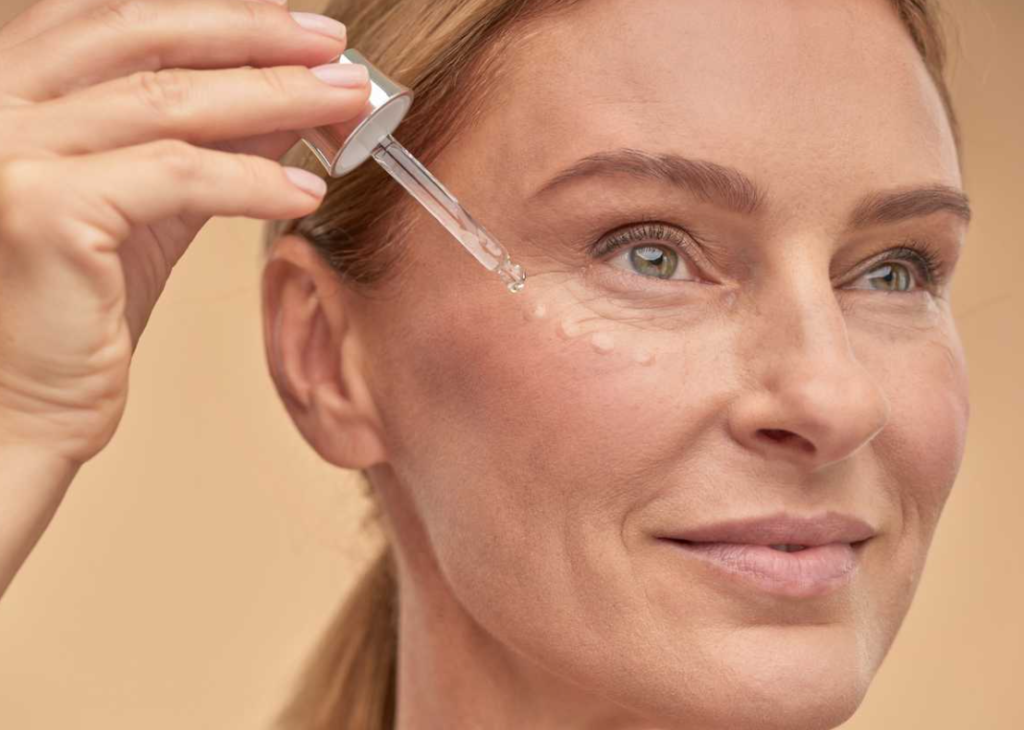What Is Anti-Aging Serum and Does It Work?
Some serums help reduce the visible signs of aging and promote healthy, more radiant-looking skin.
Aging is a natural and unavoidable part of life, and we’re all for aging naturally. But even so, many of us don’t look forward to losing our youthful appearance. As we age, our skin begins to lose its natural glow, eventually becoming dull, wrinkled, and saggy.
Along with healthy eating and minimal sun exposure, anti-aging (or pro-aging, as we like to say) serums can play a role in slowing this process down. Through the use of active ingredients, like retinoids or hyaluronic acid, some serums can help improve your skin’s texture and tone and protect against environmental stressors.
What is anti-aging serum?
Serums that support aging gracefully are skin care products containing active ingredients that target the visible signs of aging, such as fine lines, wrinkles, and age spots, with the goal of improving the appearance of your skin.
Vitamin C: The Antioxidant Powerhouse
Vitamin C, known for its potent antioxidant properties, is a vital ingredient in anti-aging serums. It offers numerous benefits, such as protecting the skin from environmental damage, brightening the complexion, and promoting collagen production. When selecting a serum, it’s crucial to look for a stable form of Vitamin C that penetrates the skin effectively.
Hyaluronic Acid: Hydration Hero
Hyaluronic Acid stands out as a hydration hero. It has the unique ability to retain moisture, keeping the skin plump, hydrated, and youthful. The key to selecting a serum with Hyaluronic Acid lies in finding a formulation that delivers this ingredient into the deeper layers of the skin, where it can provide maximum benefit.
Retinol: The Age-Defying Staple
Retinol, a derivative of Vitamin A, is renowned for its age-defying properties. It accelerates cell turnover, diminishes fine lines, and improves skin texture. Using Retinol in serums requires some care, as it can be potent. Guidelines for use include starting with a lower concentration and gradually increasing it, as well as using sunscreen due to increased sun sensitivity.
RELATED ARTICLE : DO YOU REALLY NEED SUNSCREEN EVERY DAY?
Peptides: Building Blocks of Youthful Skin
Peptides are small chains of amino acids that serve as the building blocks of proteins like collagen and elastin. They are essential in anti-aging serums for their role in repairing skin damage and reducing the appearance of wrinkles. Choosing a serum rich in effective peptides can significantly enhance skin’s firmness and elasticity(1).
Niacinamide: Versatile Skin Savior
Niacinamide, or Vitamin B3, is a versatile ingredient that addresses multiple aging concerns. It improves skin barrier function, reduces redness and blotchiness, and diminishes the appearance of pores. When looking for a niacinamide serum, it’s important to consider the concentration and formulation for optimal results.
SPF: Essential for Anti-Aging Protection
No anti-aging serum is complete without sun protection factor (SPF). Daily exposure to UV rays accelerates aging, making SPF an essential ingredient. While not all serums contain SPF, incorporating it into your routine, either in your serum or as a separate product, is crucial for protecting your skin from premature aging.
Conclusion
Incorporating these six powerful ingredients into your anti-aging serum routine can significantly transform your skin, offering protection, hydration, and rejuvenation. As with any skincare product, it’s essential to select those that suit your skin type and concerns and to use
them consistently for the best results. Remember, the secret to youthful skin lies not only in the ingredients you use but also in understanding your skin’s unique needs and nurturing it accordingly.
Frequently Asked Questions
- How often should I use an anti-aging serum?
It depends on the specific ingredients and your skin type. Generally, serums can be used once or twice daily, but it’s important to follow the instructions for each product and listen to your skin’s response. - Can anti-aging serums be used with other skincare products?
Yes, serums can be layered with other skincare products. It’s usually recommended to apply them after cleansing and before moisturizing. - Are there any side effects of using anti-aging serums?
Some ingredients, like Retinol, may cause initial sensitivity. It’s essential to start with lower concentrations and gradually increase. Always perform a patch test when trying a new product. - Is it necessary to use a serum with SPF during the night?
No, SPF is only necessary during the day to protect your skin from UV rays. At night, focus on serums with restorative ingredients like peptides or Hyaluronic Acid. - How long does it take to see results from an anti-aging serum?
It varies, but typically, it can take several weeks to several months to notice significant improvements in skin texture and appearance. - Can people with sensitive skin use anti-aging serums?
Yes, but it’s important to choose serums formulated for sensitive skin and to introduce new products gradually.





